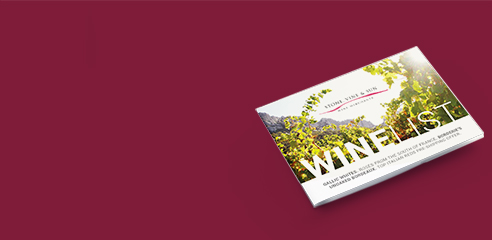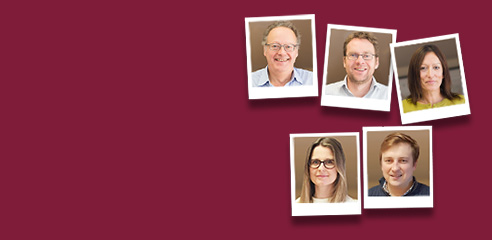B******x Rant
17th June 2011
I try hard not to rant (“Mr Angry of Twyford”), but the stream of euro prices from Bordeaux negociants and offers from UK merchants for 2010 Bordeaux has finally pushed me over the edge.
First, here’s a bit of recent history:
2000 – Millennium Year, great vintage, big price hike
2003 – Heatwave year, short crop, very concentrated wines, big price hike (aided and abetted by Captain Robert Parker of the Spaceship Wine Advocate, who loved the wines (well, he would, wouldn’t he – you could stand a teaspoon up in some of them, and many appeared as gloopy as Napa micro-cuvees)
2005 – Great Year, best since 1982, very big price hike
(Intervening years: the Chinese begin buying , and more important, drinking red Bordeaux)
2009 – Really Great Year, best since records began, etc. etc., titanic price hike
2010 – I quote from a major London merchant (two letters separated by an ampersand)
“2010 has a lot to live up to; and it does, and some. Whilst there is possibly less media frenzy surrounding the 2010s, these wines will emerge as more long-term, and quite possibly superior to the 2009s.”
So there you have it: perfection trumped, and if you spent a lot of money buying 2009s, you might even feel a mite tetchy. Oh, and by the way, lots (but not all) of prices went up again for the 2010s, in some cases by 48%.
The only conclusion is that (rather like English A level students getting cleverer and cleverer every year) the Bordelais are making better and better wines. Interestingly, if this is true, one might argue that it is rarely worth buying Bordeaux at all: if the wines are getting so much better, on an almost yearly basis, why buy any vintage when a greater one is sure to come along soon?
Prices for the first growths are now stratospheric – but that’s understandable: very rich people, all over the world, want the best of anything, whether it’s houses, cars or art, and if they want to fight over cases of Lafitte that’s their prerogative.
But I really do have an issue with a whole pile of wannabes trying to climb on the gravy train. One example: my father used to serve up Brane-Cantenac, a perfectly decent Margaux, at not very important dinners. The price for the 2003 vintage, en primeur, was £200 a case: in 2005 it was £300 a case; and for 2010 it’s £630 or more. Of course the weakness of sterling has done part of this, but the 2010 will be a stonking £65 a bottle delivered. The fact is, high prices for the best are enabling lesser lights to increase their prices grossly too. Sadly we have seen this just appearing in Burgundy too: one man in Vosne puts his prices up, and the others do too so as not to appear inferior (a bit like British universities all coming out at the maximum £9k a year).
And everyone gains from this merry-go-round. The UK merchants who continue to hype Bordeaux benefit by being able to price up their stock of older vintages. The winners are merchants, speculators and investors, and the loser is the actual drinker.
Is that right? Is £50 plus the “right” price for a moderate bottle of Bordeaux? Or does this market feel like a bubble? In recent years valuations of several areas have felt wrong before they imploded: for example the ludicrous Dublin house prices, the overweening scale of Icelandic banks, or the Contemporary Art market before 2008. Is this where Bordeaux is headed?
Do people realise that these Chateaux produced wines are not tiny production runs? The Chateaux and merchants announce immediate sell-outs, but how much did they offer? How much is being held back by the Chateaux owners? Secondly, and of enormous concern, how much wine over the last few vintages has been bought by speculators, not actual consumers. And what happens to a market when the product being traded becomes too expensive for anyone to actually consume it? The new Bordeaux market could well be a case of Abe’s Sardines, as related by the great Simon Loftus. This was a shaggy-dog story of a shipment of sardines: the punchline was “oh no, them sardines ain’t for eating, them for trading”. And watch those speculators dump the wines if prices do start falling…..
Bubble or not, DON’T BE SUCKED IN BY THIS. Here are some alternative strategies for intelligent drinkers:
1. Buy vintages nearer their drinking window.
You can taste a wine before buying (and let’s be honest, we have all had disappointments from en primeur purchases. For example right now there are lots of 2001s and 2004s around which are beginning to drink well at much lesser prices than the so-called “great vintages”.
2. Buy reds from other classic French regions
Price inflation has not been nearly as bad in Burgundy, and even for the splendid 2009 vintage prices did not rise much. In the Northern Rhone even Cote Rotie does not look over-priced, plus the better St. Josephs; in the south the best Vacqueyras and Gigondas are still very cheap ageworthy wines, plus, of course Chateauneuf-du-Pape.
3. Buy top New World reds
There are plenty of classic or emerging New World reds which can be laid down. Try any of these: Ridge Zins and the Estate Cabernet; Felton Road Pinot Noirs; Adi Badenhorst’s Family Red from Swartland; top Chilean Cab. and Carmenere blends (sadly the top Errazuriz wines have become more expensive but they are still worth considering); the best Mendoza Malbecs, such as Walter Bressia’s wines; and as an excellent but lesser known alternative to red Bordeaux, look at the wines of Washington State, where Merlot and Cab. thrive – see for example our Seven Hills wines (new shipment arriving shortly).
4. Buy top Loire late harvest wines rather than Sauternes
Sauternes too have become horribly expensive: so instead lay down top Loire wines from the Coteaux du Layon and its top sub-regions, Quarts de Chaume and Bonnezeaux. They are often cleaner (if less botrytic) with more intense flavours, and with high acidity levels they last forever. Or look at Austrian sweeties – sensational.
Rant over.



